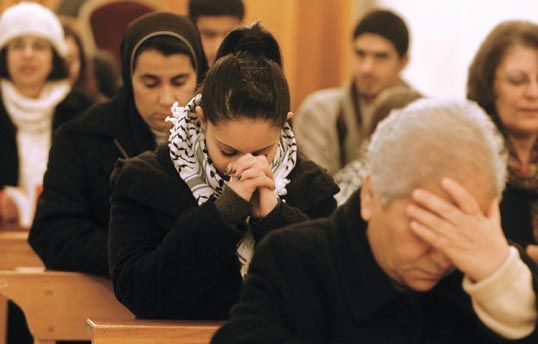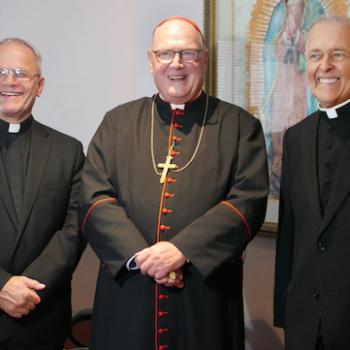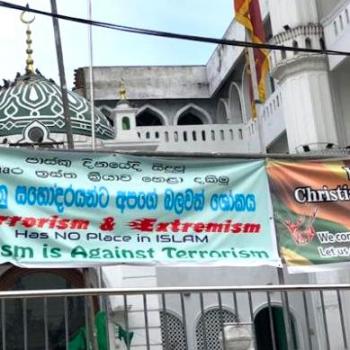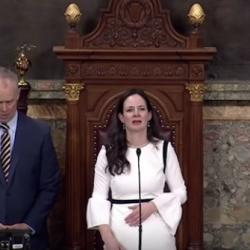My colleague at CNEWA, Michael J.L. La Civita looked at that question in a speech this weekend:
Is there a future for Christians — indeed for any minority — in this new Middle East? What role will religion play, especially Islam, in governing these peoples? And, is Islam compatible with the so-called democratic aspirations expressed by the reformers leading the ‘Arab Spring?’ …
… The Middle East’s Christians have been on the move since the apostles left Jerusalem after Pentecost. Whether hiding from persecution by Jewish leaders, Roman emperors, Persian forces, Byzantine bishops or Ottoman generals, the region’s Christians have demonstrated agility and a tremendous will to survive.
Emigration continues. Again, from the pope’s apostolic exhortation: “Many Christians are now seeking more favorable horizons and places of peace where their families will be able to live a dignified and secure life, and spaces of freedom where they can express their faith openly without fear of various constraints.
“This is a heart-rending decision. It has a profound impact on individuals, families and churches. It dismembers nations and contributes to the human, cultural and religious impoverishment of the Middle East. A Middle East without Christians, or with only a few Christians, would no longer be the Middle East, since Christians, together with other believers, are part of the distinctive identity of the region.”
Unlike Judaism or Islam, Christianity is not tied to a place, be it a land or a shrine. Nor is mature Christianity bound by tribal mores or ethnic customs. Christianity transcends national, ethnic and cultural boundaries. And while particular churches may at times become entangled with a certain culture, ethnic group or even political party, these churches serve the whole world, particularly as they envelope the whole world.
And so this remains true, especially in the Middle East. Perhaps the critical mass of a faith community that gave us the origins of Arab nationalism and Palestinian liberation theology will evaporate. But hopefully the seeds of hope and social justice sowed by generations of Christian teachers — priests, religious lay men and women — will germinate and take root.
There’s much more. Read it all.












